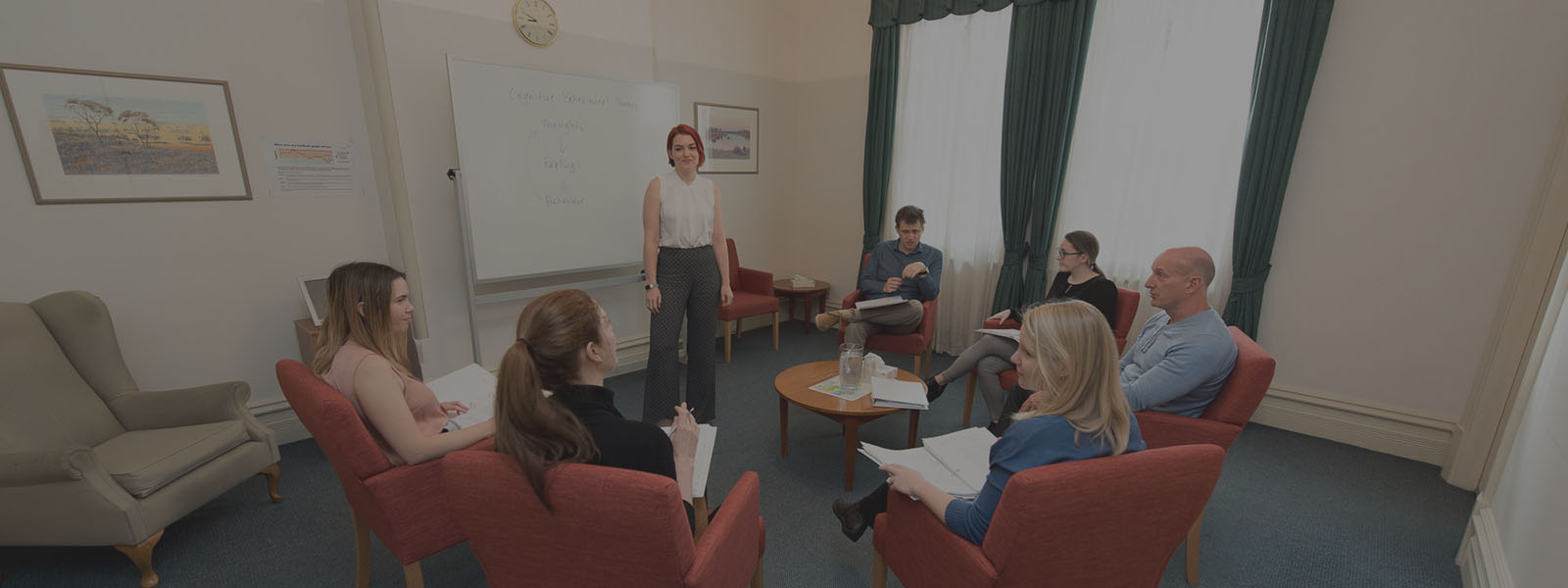Inpatient Therapy Programs

Inpatient Therapy Programs

Mental health recovery (what therapy is available)
Perth Clinic continues to strive to empower people working towards recovery.
Mental health is an ongoing process. People have vastly differing life experiences which also effects recovery.
We all have different experiences with mental health recovery itself. The process unfolds as you progress with your recovery plan.
Following admission, your doctor will discuss what therapy groups might be most appropriate. It is important to be an active participant in all treatment and recovery decisions. It is sometimes difficult to take ownership of these decisions when feeling vulnerable, although as your mental health improves, gaining a sense of control can be quite empowering.
Perth Clinic offers a range of services for people experiencing mental health problems. In times of crisis, acute inpatient treatment may be required. Many people may opt for day therapy. For people who may not require an inpatient admission, day therapy programs offer a suitable alternative.
Everybody has their own recovery or treatment plan. A week in hospital may involve:
- Morning therapeutic groups with a focus on skills from 9:00-12:30
- Afternoon relaxation and creative groups until 3pm
- Weekend groups
Mood Management
Mood Management has been designed as an inpatient therapy group, primarily for people experiencing depression and anxiety. At times, psychiatrists may refer people to the group to attend on a day-patient basis. In principle, more effective clinical pathways are to pursue intensive CBT, DBT or mindfulness groups.
Interpersonal Therapy
Interpersonal Therapy (IPT) is based on the recognition that having difficulties in relationships can contribute to feelings of depression and other painful emotions and symptoms. This kind of therapy also emphasises that good relationships with others are important buffers against painful emotions. IPT is present-focused to help people resolve some of the current problems in their interpersonal relationships. It is a therapy that assists in the improvement of interpersonal relationships by strengthening communication skills and self-esteem.
Interpersonal therapy is directed at assisting with:
- grief after the loss of someone close;
- difficulties during a role transition period, e.g. starting a new job, becoming a parent;
- resolving interpersonal disagreements or disputes; and
- building and improving interpersonal relationships and communication skills.
Like other psychological therapies, the main goal of IPT is to reduce distressing emotions and symptoms in order to improve quality of life. IPT recognises that interpersonal relationships have a large impact on how people feel, and, in turn, emphasises that how people feel can have a large impact on their relationships. Because of this, IPT aims to reduce difficulties in interpersonal relationships, and to build new skills that can help foster positive and useful communication with others. Relationships are seen as the main area for change, which in turn can produce improvements in other areas such as mood and motivation.
Drug and Alcohol
Substance use can cause a lot of problems in people’s lives. Problematic substance use may be a primary or secondary mental problem. In any case, dealing with substance use issues through therapy can be beneficial. Inpatient treatment can help a person to detox from the substance, under medical supervision, which is often important because some drugs can be quite risky to detox from abruptly.
Creative Expression
Creative expression group provides a space for people to spend time focusing on an activity, engage in a mindful way and build confidence. The activity may benefit as a distraction from distress but may also be used to build tolerance of uncomfortable emotions. It also provides a space for self-exploration and pleasant activities that hold one’s attention and facilitate a process of change through meaningful occupation.
Stress management
The stress management group runs every day during the week. These groups are run according to a 3 weekly schedule with major topics relevant to learning how to manage stress more effectively. Some topic examples include: lifestyle balance, networks, nutrition, exercise and breathing techniques. The stress management group also includes a practical skills component in which the therapist provides an opportunity to practice key stress management skills such as progressive muscle relaxation, meditation or visualisation.
Supporter sessions
It is very important to involve supporters in mental health recovery. Supporter sessions can help family and friends to increase understanding of mental health issues and how to best align their actions towards recovery goals. Facilitators act to empower participants to have more open dialogue in support of treatment plans.
The clinic conducts supporter sessions for supporters of current inpatients of the Clinic on Tuesdays and Thursdays from 18:30-20:00 each week. Specific supporter sessions are also conducted within both CBT and DBT programs.
Outreach Services
Outreach is a recovery-focused service aimed at providing community support. Outreach services are provided by mental health nurses who conduct home visits. This in-home community-based service provides ongoing assessment and care. Nurses will work with people in their home to assist identifying collaborative strategies to increase effective recovery planning. Outreach nurses work closely with the treating psychiatrist and the person to develop an appropriate outreach service plan.
Key strategies include:
- Education and support
- Improving coping skills
- Risk assessment
- Increase recognition of early warning signs
- Facilitation of community access and occupational engagement
